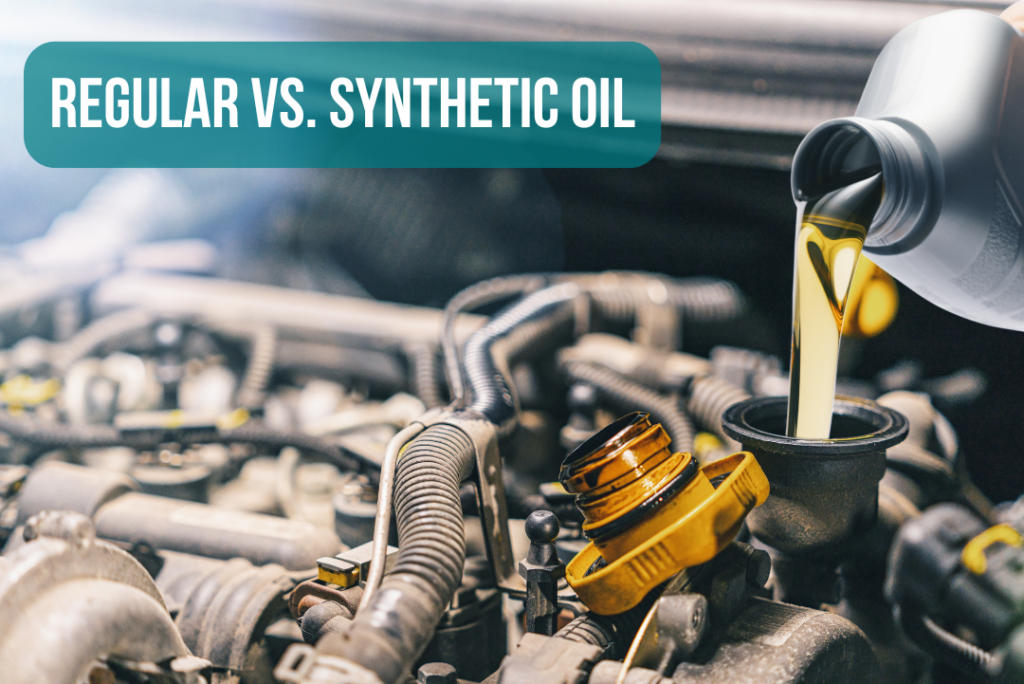There’s an ongoing debate on which is the right motor oil to use in vehicles. Conventional motor oil is often the one recommended by manufacturers, but synthetic oil has its advantages that might make it a better option. Each one serves to lubricate the engine to prevent friction, however their composition, performance and price are very different.
Let’s start with the pros and cons of each type of oil.
Regular Oil
Regular or conventional oil is derived from crude oil that’s been refined and processed. It contains a mixture of hydrocarbons and, in many cases, additives to enhance its performance.
The Pros: Regular oil is usually less expensive, making it a budget-friendly option for many drivers. It works well in older vehicles, especially if the engine has been well-maintained.
The Cons: Regular oil is less processed than synthetic oil so it contains more impurities which can lead to faster breakdown and the need for more frequent oil changes. Regular oil doesn’t perform as well as synthetic oil in extreme temperatures and under high-performance situations like heavy towing.
Synthetic Oil
Synthetic oil is engineered in a lab using chemically modified petroleum components. The components are made by breaking down and then rebuilding petroleum molecules.
The Pros: Synthetic oil is more stable at high temperatures and flows better at low temperatures, providing excellent protection in both extreme heat and cold. Since it is more refined, synthetic oil can last longer between oil changes, potentially saving you time and money in the long run.
The Cons: Synthetic oil costs more, which is a deterrent for many drivers. It is thinner than regular oil, so it may move too quickly through older engines, not lubricating them well enough.
So, Which Oil is Right for Your Vehicle?
The decision between regular and synthetic oil comes down to your specific vehicle and driving habits.
- Older Vehicles: If you drive an older car and follow a routine maintenance schedule, regular oil may be all you need. It’s affordable and gets the job done.
- Modern or High-Performance Vehicles: If you have a newer vehicle, especially one with a turbocharged engine, or if you regularly drive in extreme temperatures or under heavy loads, synthetic oil is likely the better option.
- Driving Habits: Consider how you use your vehicle. If you do a lot of stop-and-go driving, frequently tow heavy loads, or drive in extreme weather conditions, synthetic oil will give your vehicle the stability and protection it needs.
Ultimately, the choice between regular and synthetic oil depends on your vehicle’s needs, your driving habits, and your budget. Our expert technicians can help guide you in determining which oil would be best for your vehicle. Once that’s established, we’ll help you come up with a schedule for oil change service and anything else you may need. Give us a call or visit us to schedule an appointment.

